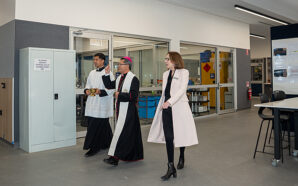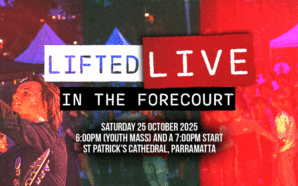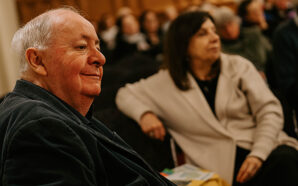Most Reverend Vincent Long Van Nguyen OFM Conv DD STL, Bishop of Parramatta
Homily for the Diocesan Annual Wedding Anniversary Mass (30th Sunday in Ordinary Time, Year B)
Readings: Jeremiah 31:7-9; Hebrews 5:1-6; Mark 10:46-52
God uses the outcasts to show us the model of discipleship
Dear sisters and brothers,
Today, we join with many couples who are here to give thanks to God for the gift of marriage, which they have shared with each other and their loved ones. They have sought to emulate the self-sacrificial love of Christ, and I am sure they have realised how that effort often runs up against their human limitations. Today is, therefore, the day to give thanks and to renew our commitment to live with the mind and heart of God.
Whatever path we walk in our journey of giving and receiving love, we are not meant to be alone. We need to listen, learn, support and enrich one another. Your union in marriage reflects the union of the Trinitarian God who models for us a community of relational harmony, unity in diversity and mutual empowerment.
The Word of God this Sunday speaks to us about the God who does not judge people on the basis of their abilities and accomplishments. Instead, he cares more about how we can create a just, loving and inclusive community -one that is beneficial not just to the rich and the strong but favourable especially for the weak and the lowly.
In the first reading, the prophet Jeremiah speaks words of comfort and hope to his people. During the long and harrowing exile in Babylon, many of them had given up their ancestors’ faith and drifted away. Those who remained loyal and steadfast in spite of the ordeal came to be known in the prophetic literature as the remnants of Israel. These were not the movers and shakers, the elites and the echelons of Jewish society. Rather the remnants were the people considered to be the lowliest and the most vulnerable among the exiles. Jeremiah referred to them as “the blind, the lame, women with child and women in labour”. He galvanised them with fresh hope. He prophesied that God would bring them back from captivity and they would rebuild Israel.
The Gospel depicts Jesus as one who engenders hope in despair, light in darkness and grace in vulnerability. He and his disciples were found around Jericho which was the last stop before their destination in Jerusalem. There, Jesus met, healed and changed the life of the blind beggar. He saw the faith and dignity of someone whom society dismissed as inconsequential. We can see the contrast between the attitude of the crowd towards the blind beggar and that of Jesus. When he cried out “Jesus, Son of David, have pity on me”, many rebuked him telling him to be silent. The voice of Bartimaeus was considered of little value. It was Jesus who turned this assumption upside down. He attuned his ear to the cry of the beggar; he sought him out; he affirmed his dignity; he championed his cause.
The blind beggar on his part did something that everyone else failed. He acknowledged who Jesus truly was. For in the Gospel, the title Son of David is indicative of the true identity of Jesus. He is the Messiah, the Saviour. In other words, the blind beggar was able to see much more than the crowd. He possessed true vision. That is the irony. The people who had physical sight yet were blinded by their prejudices. Bartimaeus turned out to be the unlikely hero of discipleship.
Dear brothers and sisters,
Today, we honour and thank these couples for their commitment to Christian marriage and to the values of the Gospel. As a domestic church and the basic unit of a Christian community, they endeavour to live according to the pattern of the self-emptying God against the culture of self-interest. By their generosity, patience and selflessness, they model the God that Jesus revealed. Their witness in marriage is a sign of hope and renewal of God’s everlasting love to his people.
Wherever we find ourselves in our relationships, let us remember the good news that God is love, and that all God’s grace is now being offered us to find the truth that will set us free. Everyone in this church, whatever our past history, is capable now of loving and receiving love. Knowing that we are not meant to be alone, let us take whatever small steps in order to build and nurture the bonds of love.
Pope Francis has consistently said that the Church is not a museum for saints but a hospital which heals the wounded, strengthens the weak and lifts up the lowly. Our very credibility is at stake when we lack merciful and compassionate love for those who are struggling or are removed and disengaged with the lived reality. Let us endeavour to be the Church where everyone can feel welcomed, forgiven, loved and encouraged to live according to the Gospel.
Jesus poses the same question to Bartimaeus as he did to James and John last week. “What do you want me to do for you?” As it turns out, it is the latter who despite his disability has what it takes to be the true follower. He asks for vision and once given, he uses it to follow Jesus the light of the world. Let us also ask for the vision of faith that enables us to see and act according to the values of the Gospel. Let us follow him not by the way of power and glory by the way of the self-giving love.








